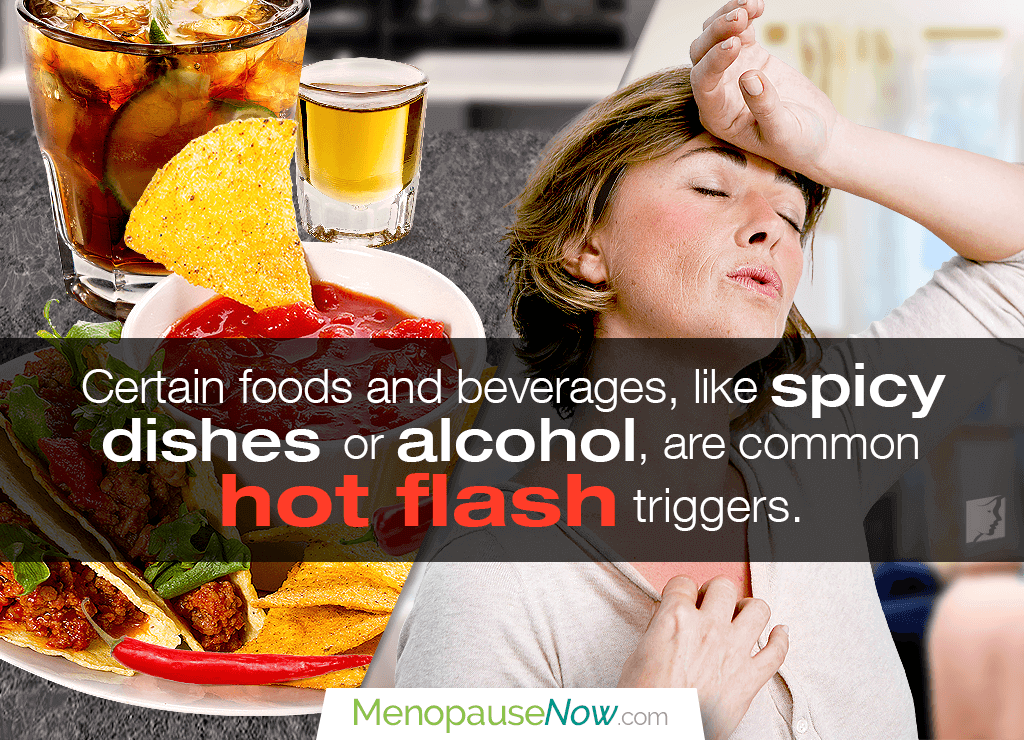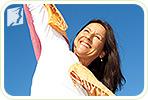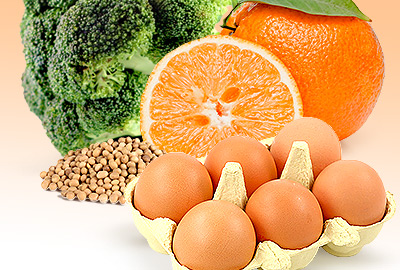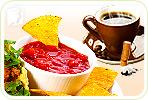In the morning, you have a big bowl of cereal. The afternoon may bring a craving for a donut. After a long day at work, all you want to do is sit down to Mexican dinner and maybe a glass of wine. However, all of these choices could be making your hot flashes more frequent or more intense.
Find out why do you have hot flashes after eating and drinking as well as what can be done so that you can finally enjoy stable body temperature for life.
Why Do I Get Hot Flashes After I Eat Meals?
Spicy dishes - such as curry sauces, hot salsa, and heavily seasoned chili dishes - are known to evoke flushing, sweating, and increased body temperature due to their capsaicin content, thus triggering or exacerbating hot flash episodes.
Moreover, foods with high-fat and sugar contents are broken down more quickly than complex carbs when consumed. A diet rich in these culprits has been found to increase the risk of vasomotor menopausal symptoms.1
Additionally, dairy products are aggravators of menopause hot flashes for many women, although the exact reasoning why is yet to be found, and consuming large amounts of meat may trigger hot flashes as it often causes the body to break out into perspiration.
Why Else Do I Get Hot Flashes After I Eat?
Women may think it's their cuisine triggering the hot flashes, but actually, it could be what they're drinking.
For beginners, caffeine is a common stimulant found in coffee, tea, and soft drinks that can narrow blood vessels and raise heart rate, causing hot flashes. It that has been scientifically linked to more bothersome hot flashes and night sweats in postmenopausal women.2
Likewise, hot beverages have also been found to trigger hot flashes in menopausal women because they can raise body temperature in an already hormonally destabilized body (remember: low estrogen causes hypothalamic malfunctioning).
Lastly, alcoholic drinks cause blood vessels to expand and relax, and they also offset the body's temperature control, triggering a hot flash. So, if you're one of the many women who enjoy a glass of wine after dinner, you could be setting yourself up for an uncomfortable evening of night sweats.
Reminders
All of the foods listed here are potential triggers. Every woman is different and responds to different stimuli. Try an elimination diet alongside journaling what you consume and when you get hot flashes to see if you can identify your own personal triggers. Also, check out natural and effective treatments for hot flashes that will tackle this bothersome menopause symptom right at its origin.
Sources
- American Addiction Centers. (n.d.). Night Sweats and Alcohol: Why Alcohol Makes You Hot. Retrieved December 5, 2019, from https://www.alcohol.org/effects/warm-flushed-skin/#does-alcohol-cause-excessive-sweating-
- O'Neill, J. et al. (2012). Unravelling the Mystery of Capsaicin: A Tool to Understand and Treat Pain. Pharmacological Reviews, 64(4), 939-971. doi: 10.1124/pr.112.006163
- Organic Consumers Association. (2006). Avoiding Menopausal Hot Flashes by Changing Your Diet. Retrieved December 5, 2019, from https://www.organicconsumers.org/news/avoiding-menopausal-hot-flashes-changing-your-diet
Footnotes:
- Herber-Gast, G.C. & Mishra, G.D. (2013). Fruit, Mediterranean-style, and high-fat and -sugar diets are associated with the risk of night sweats and hot flushes in midlife: results from a prospective cohort study. The American Journal of Clinical Nutrition, 97(5), 1092-1099. doi: 10.3945/ajcn.112.049965
- Mayo Clinic. (2014). Study Suggests Caffeine Intake May Worsen Menopausal Hot Flashes, Night Sweats.Retrieved December 5, 2019, from https://newsnetwork.mayoclinic.org/discussion/mayo-clinic-study-suggests-caffeine-intake-may-worsen-menopausal-hot-flashes-night-sweats/




